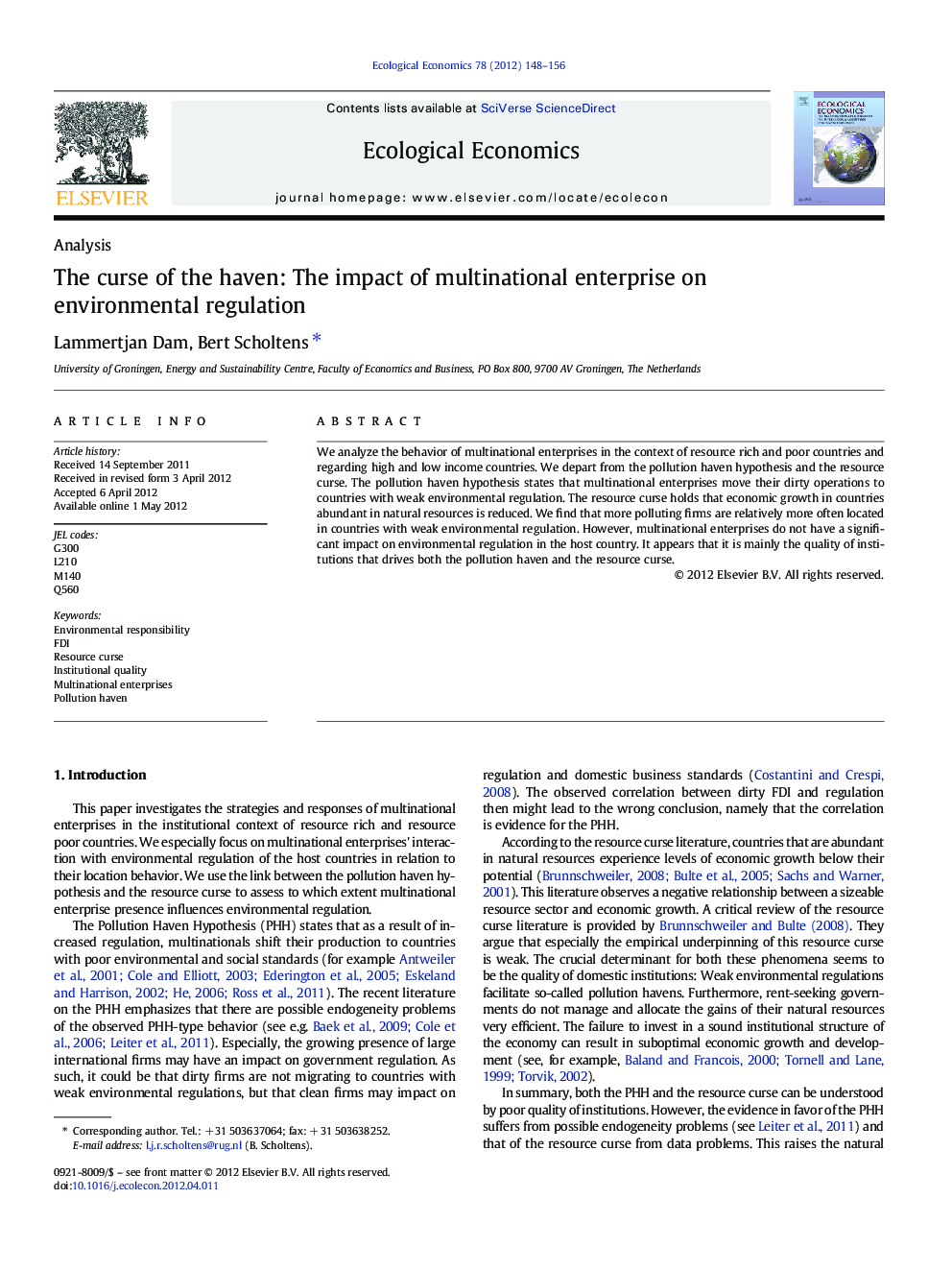| Article ID | Journal | Published Year | Pages | File Type |
|---|---|---|---|---|
| 5050314 | Ecological Economics | 2012 | 9 Pages |
We analyze the behavior of multinational enterprises in the context of resource rich and poor countries and regarding high and low income countries. We depart from the pollution haven hypothesis and the resource curse. The pollution haven hypothesis states that multinational enterprises move their dirty operations to countries with weak environmental regulation. The resource curse holds that economic growth in countries abundant in natural resources is reduced. We find that more polluting firms are relatively more often located in countries with weak environmental regulation. However, multinational enterprises do not have a significant impact on environmental regulation in the host country. It appears that it is mainly the quality of institutions that drives both the pollution haven and the resource curse.
⺠We analyze multinational enterprises in resource rich and poor countries and in high and low income countries. ⺠We investigate the conduct of 540 multinationals with over 44,000 subsidiaries in 188 countries. ⺠We investigate the pollution haven hypothesis and the resource curse in tandem. ⺠Less environmentally responsible firms are relatively more often located in countries with weak environmental regulation. ⺠Multinational enterprises do not appear to have a significant impact on environmental regulation in the host country.
